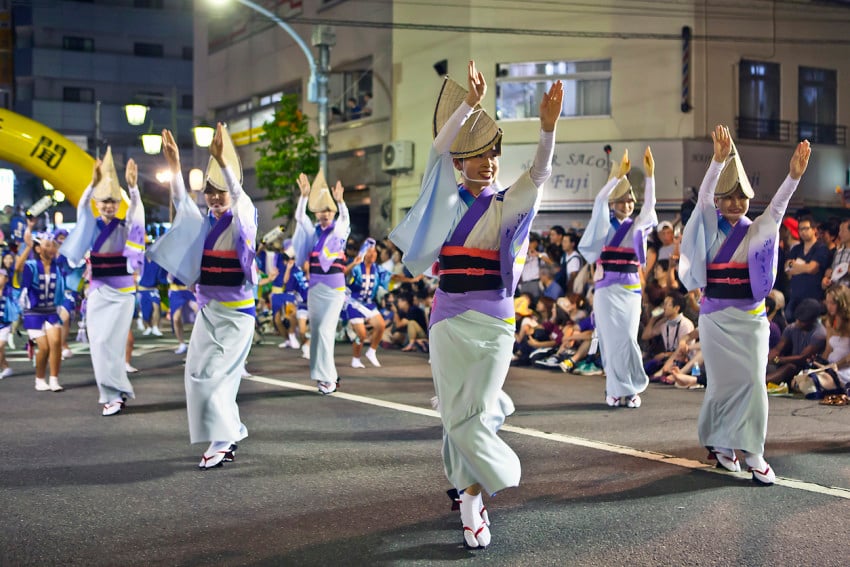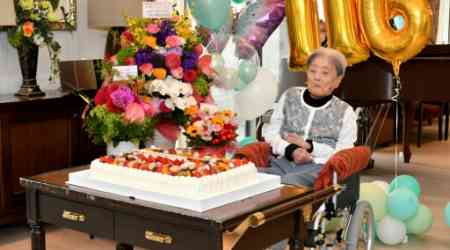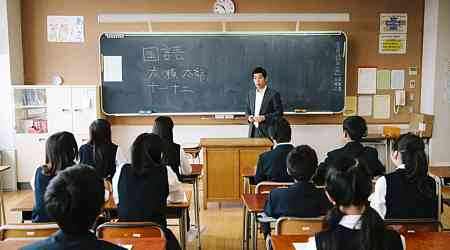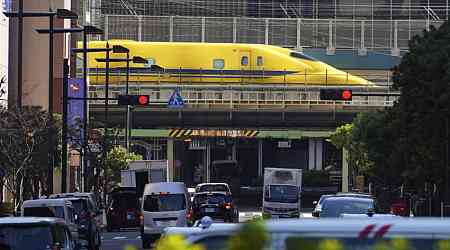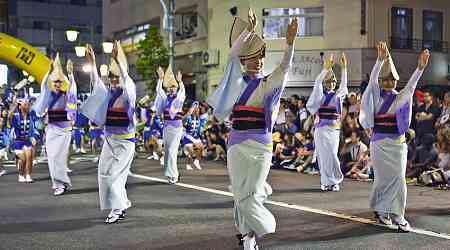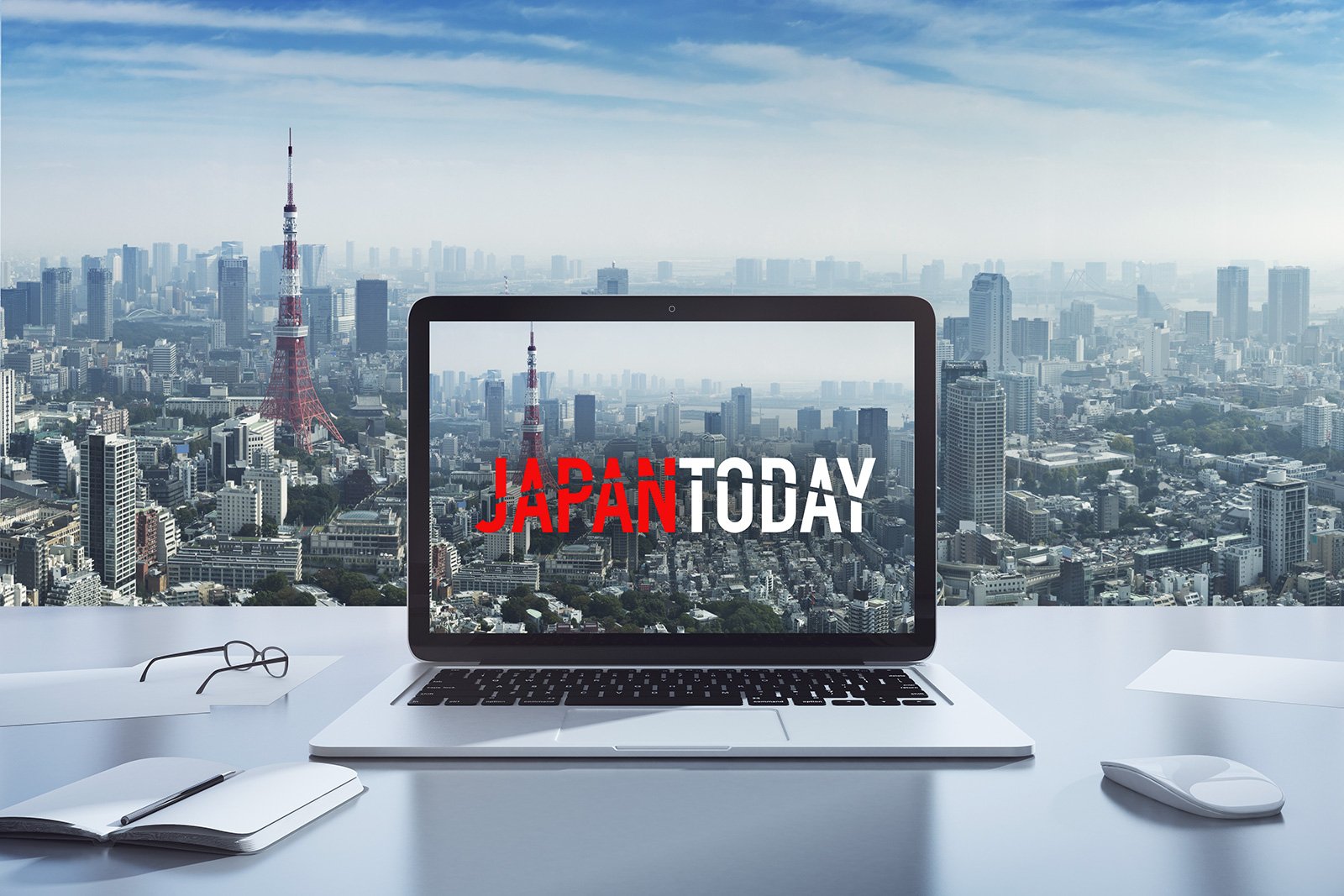Balancing the need to attract visitors while preserving traditional rituals is an ongoing challenge for Japanese communities where local festivals are valuable assets that bring much-needed tourist spending, but sometimes at a cost to the culture.
This seems to be especially true for a Shinto shrine whose centuries-old annual celebration for deities has become a massive festival attraction for the ancient Japanese capital of Kyoto, a city already straining under its tourist load.
Causing further angst is the relatively new practice of selling premium seating for people willing to pay for uninterrupted views of the parade while being served food and drinks. Local organizers of festivals around Japan are hoping to cash in on foreigners with deep pockets who want the experience of a lifetime.
When the special tickets were sold at the famed Gion Festival in Kyoto, the head priest of the Yasaka Shrine, which oversees the month-long extravaganza in July, was critical of the concept, especially the serving of alcoholic drinks.
Arguing that the deeply religious festival "is not a show" but a sacred event, the 65-year-old priest, Akiyoshi Nomura, threatened to resign from the board of directors of the Kyoto City Tourism Association over the alcohol issue.
Nomura was defending the long and important history of the shrine's festival which is said to have started in the Heian period (794-1192) as a purification ritual during an epidemic. Later, it turned into an annual Shinto festival to welcome and bid farewell to gods and goddesses, according to the Kyoto city office.
It has grown over the centuries to be one of the biggest, most well-known festivals in Japan. The Kyoto police said the Yoiyama float procession parade, the Gion Festival's showcase event designated in the UNESCO Intangible Cultural Heritage list, alone drew roughly 140,000 people to watch along its route on July 17, 2024.
The decision to introduce exclusive seats demonstrates the lengths Japanese municipalities feel they need to go to ensure the survival of their festivals, many of which are rooted in tradition and legacies of Shintoism or indigenous faiths, as depopulation also poses challenges.
Locals have been searching for ways, sometimes with little success, to keep their traditional events alive, or just revive them to a point where they can emulate some of their past glories.
The promoters of the Aomori Nebuta Festival were some of the first to introduce premium seating. They had an idea to offer VIP box seats for up to eight people at the summer fire festival in the northeastern prefecture of Aomori known for nightly parades of giant illuminated floats.
They received strong interest when they initially put the seats on sale at the 2022 festival for 1 million yen per box and the packages continued to be sold, with the price increased to 1.1 million yen in 2024.
The Awaodori Dance Festival in Tokushima Prefecture, western Japan, followed suit in 2023 by launching premium tickets for gallery seats priced at 200,000 yen per person, including those reserved specifically for overseas travelers.
The seats gave unobstructed, closeup views of oncoming performers in the renowned late-summer dance festival with a 400-year history. However, it was later determined that the temporary seating structure failed to meet legal building standards, prompting organizers to refund ticket fees and discontinue the service.
The Aomori and Tokushima festivals offered specialty food and drinks, including sake and other alcoholic beverages. In addition, the ticket holders were given access to experts who gave insights about the performances.
The Gion Festival in Kyoto joined the bandwagon in 2023 and offered premium tickets for 400,000 yen per seat for the "Yamahoko" float procession parade.
A total of 84 premium seats were set up in 2023 and 60 for 2024 at an intersection in the heart of the western city.
From the vantage point, tourists could watch floats spinning 90 degrees through the sweat and power of human effort. They were also given multilingual audio guides to supplement their experience.
The tug-of-war between tourism and tradition surfaced shortly before the 2024 event, when the Yasaka Shrine priest Nomura protested in reaction to the Kyoto tourism association's plans to serve alcohol for the premium-seat package, this time at a reduced 150,000 yen price tag.
His opposition and threat to resign made national headlines and after the association apologized for "not providing a clear explanation" about serving alcohol, it promised to serve only soft drinks at the 2024 festival.
"It was uncomfortable for me to see spectators drinking alcohol as if they were watching a show (in 2023). We agreed that we wanted to make a better Gion Festival," said Nomura, who ultimately compromised and remained on the board.
The association respected the shrine's demand that traditional rituals be honored but noted that offering premium seats is still in consideration for 2025 and beyond, albeit without an alcohol service.
An association official stressed the significance of "staying true to tradition."
"We have to push forward with our work to deepen understanding of the festival while also respecting rituals," the official said.
Tourism experts point out the importance of maintaining a delicate balance when holding festivals.
Yoshihiro Sataki, professor of tourism at Josai International University, said the idea to offer premium seats came from a "mixture of a decline in festival participation and growing inbound tourism."
He noted that many festivals struggle with funding due to a lack of participants and rising security costs and, hence, are focusing on how to improve their economic benefits.
However, he warned that the latest trend "may lead to a backlash if the traditions that have been carefully preserved are damaged."
"It's crucial to be thoughtful of the feelings of local residents who have handed down the traditions for generations," Sataki said.


















